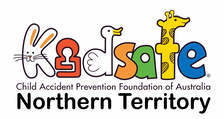Welcome to Road SafetyOur Road Safety section provides information on keeping children safe in the car and on the road. In addition to providing road safety information Kidsafe NT also offer a child car restraint fitting, checking, hiring and advice service.
The risk of injury and death posed to children in car accidents is reduced by as much as 70 to 80 percent if proper restraints are correctly installed and used. It is now a legal requirement for all children up to the age of 7 years to travel in child car restraints appropriate for their age and development. Kidsafe NT's renowned child car restraint hire, fit, check, sales and advisory service is performed by our Type 1 Child Car Restraint Fitters that are highly trained and accredited professionals. All funds raised from this service goes towards developing programs and materials for parents and caregivers to create safer environments for Territory kids. To make a booking or enquiry regarding child car restraint fittings, please call us on (08) 8941 8234 or contact us via the Contact Us tab. |
Information SheetsNewsletter Sign UpWe update our information sheets regularly. To ensure you always have the most up to date, please sign up to our newsletter below.
|
|
|
|
|
Donate to make a safer world for Territory Kids |
COntact UsOpen hours:
9am - 4pm Monday to Friday Email: [email protected] Phone: (08) 8941 8234 Visit us: 1/13 Bishop Street, Woolner NT 0820 Post: PO Box 37662, Winnellie NT 0821 Location |
|
